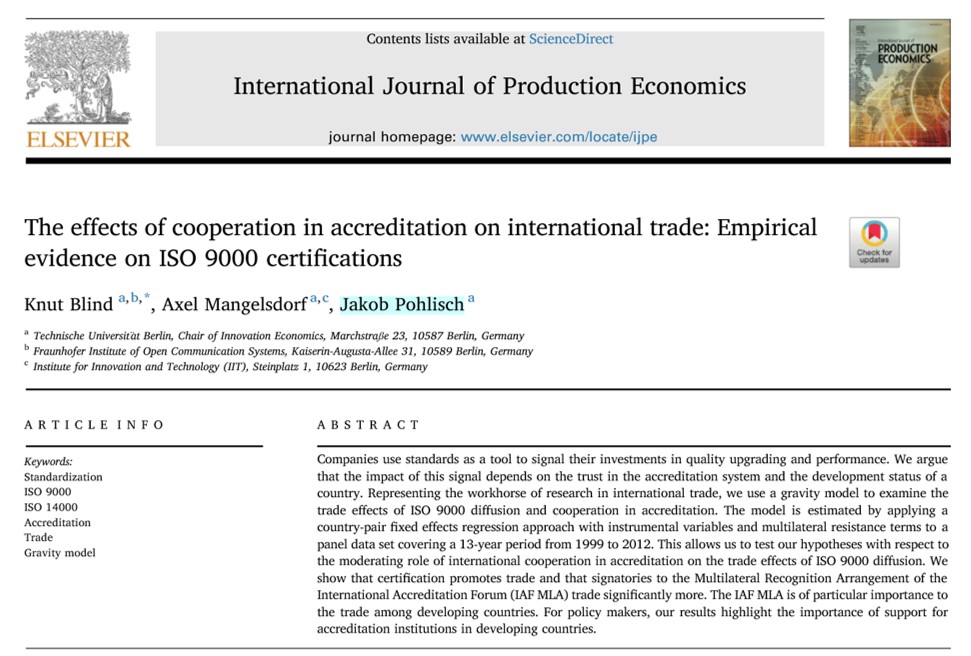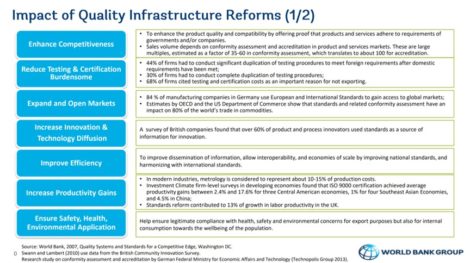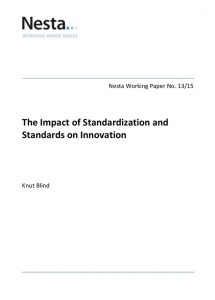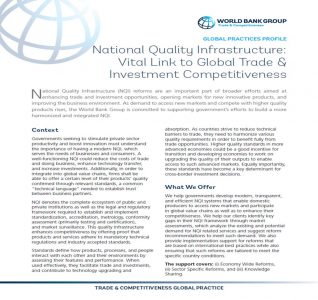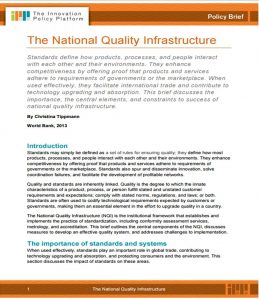Research
The effects of cooperation in accreditation on international trade: Empirical evidence on ISO 9000 certifications (January 2018)
Companies use standards as a tool to signal their investments in quality upgrading and performance. The authors argue that the impact of this signal depends on the trust in the accreditation system and the development status of a country. Representing the workhorse of research in international trade, the authors use a gravity model to examine the trade effects of ISO 9000 diffusion and cooperation in accreditation. The model is estimated by applying a country-pair fixed effects regression approach with instrumental variables and multilateral resistance terms to a panel data set covering a 13-year period from 1999 to 2012. This allows them to test their hypotheses with respect to the moderating role of international cooperation in accreditation on the trade effects of ISO 9000 diffusion. They show that certification promotes trade and that signatories to the Multilateral Recognition Arrangement of the International Accreditation Forum (IAF MLA) trade significantly more. The IAF MLA is of particular importance to the trade among developing countries. For policy makers, our results highlight the importance of support for accreditation institutions in developing countries.
A full copy of the report is available from the Research Gate website.
Authors: Axel Mangelsdorf, Knut Blind, Jakob Pohlisch

